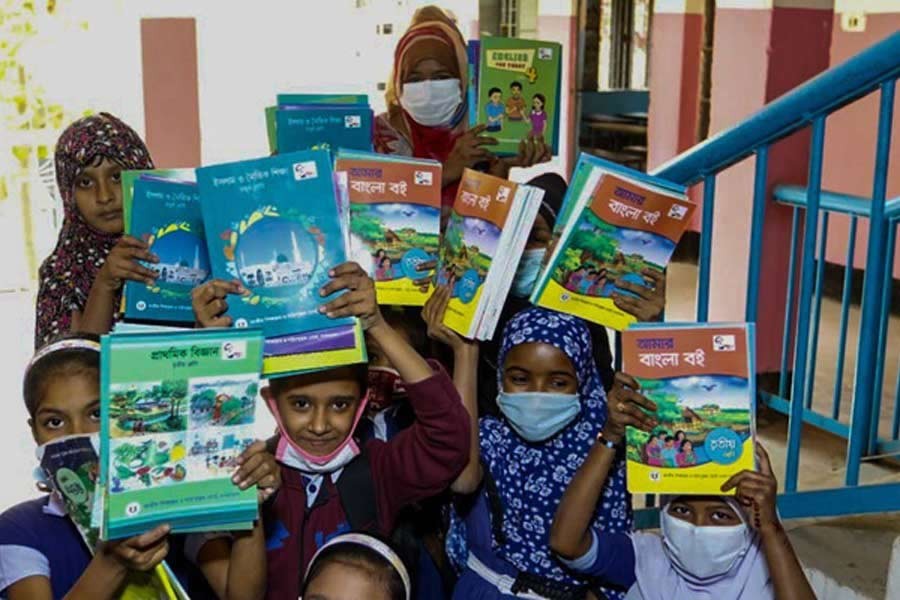The High Court could not help expressing dismay at the misinformation and errors contained in textbooks of secondary and higher secondary classes. The mistakes, moreover, concern the history of the Liberation War of the country. No wonder, the HC observed that it was regrettable that such things could happen at a time when the political party that led the war in 1971 and espouses its spirit is in power. The HC has directed the chairman and member concerned of the National Curriculum and Textbook Board (NCTB) to appear before it to explain why such gross errors were there. The HC bench further asked the ministry concerned to explain why it should not be directed to bring about corrections to those errors.
What is intriguing is that such mistakes have escaped notices of the Ministry of Education, the education boards and NCTB so far. Reportedly, the blunders were brought to the notice of the ministry concerned earlier by the complainant but to no effect. So, the petitioner, a guardian of a student of Viqarunnisa Noon School had to seek redress by moving a case with the HC. Concerned that students will be taught the distorted facts once again in the new academic year, he has also sought correction of those before the distribution of textbooks in the new academic year.
This is not for the first time that textbook errors have undermined the quality of education. In 2017, a poem by Kusumkari Das, mother of poet Jibananda Das, was outrageously changed in spellings and even a full sentence. At that time the education ministry summoned the NCTB chairman to explain why the blunders could happen. But this pales before what was done to the textbooks in the same year. Under pressure purportedly from a certain group, as many as 17 poems and stories including those by Rabindranath Thakur and Sharat Chandra Chattopadhya were removed from textbooks of different classes at the secondary level. Protests by educationists and cultural activists failed to prevail upon the authorities concerned. It smacks of a political motive rankling behind the removal of those pieces. But then was there any ulterior motive behind the 100 errors or distortions of facts now a guardian has cited for correction? If it is not deliberate, it surely is an act of naivety or knowledge gap.
It is time the very process of tender bidding and assigning writers for textbooks were brought under closer scrutiny. Who are given the task of writing such important textbooks? When less competent people instead of the highly qualified writers are given the task for higher profit or for considerations other than academic excellence, such blunders are bound to occur. In countries where education is valued at its best, the most learned educationists and experts in the subjects concerned are appointed to accomplish the task. True, men of Vidyasagar's or Rabindranath's calibre with a gift of creativity will not be available to read the young minds but at least there will be some educationists who can appreciate the best reading materials available. The issue of selection and revision of contents as well as writing afresh textbooks on subjects to be introduced to classes under the proposed new curricula assumes a far greater importance now. So this challenging task has to be taken very seriously.


